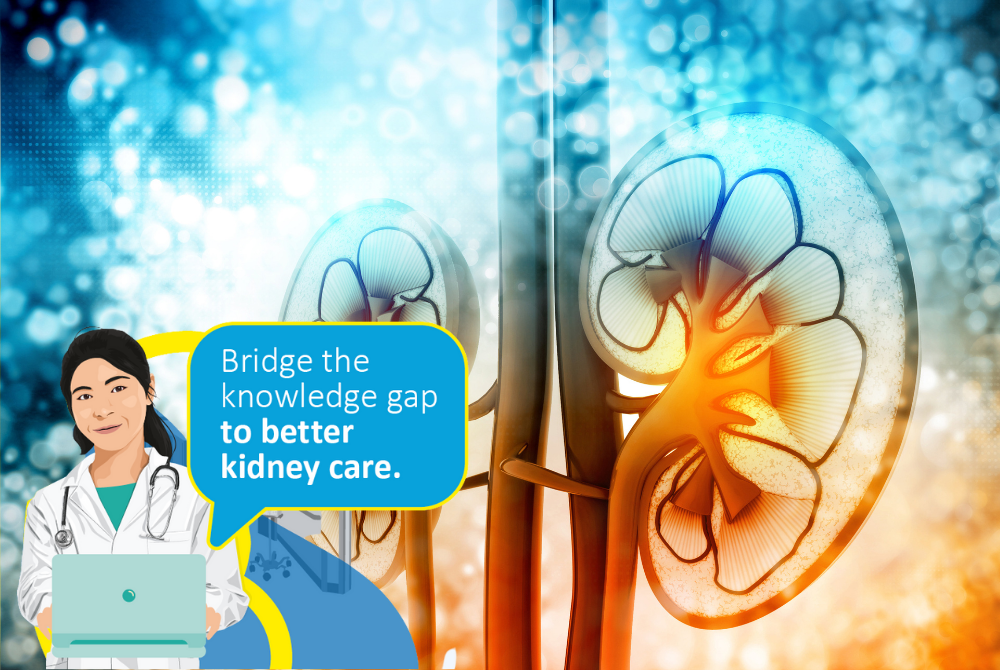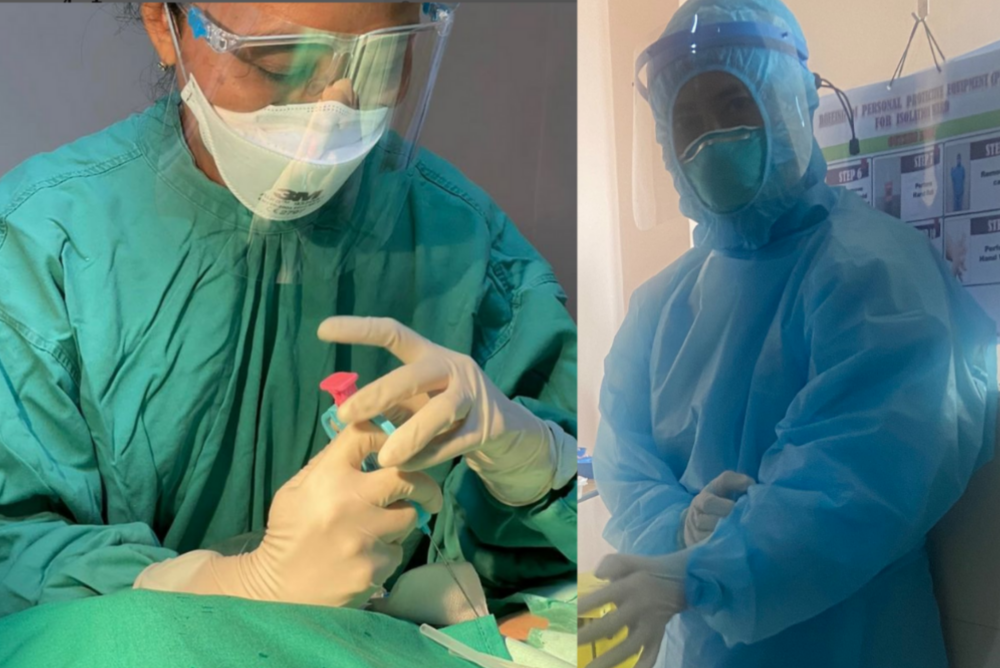"Bridge the knowledge to better kidney care" between healthcare professionals and you
DR RAFIDAH ABDULLAH
World Kidney Day 2022 is celebrated on March 10 this year. This is a global movement to raise awareness about kidney health. It is a joint initiative of the International Society of Nephrology and the International Federation of Kidney Foundations.
For 2022, the theme is "Kidney Health for All" with campaigns aiming to "Bridge the knowledge to better kidney care". The prevalence of kidney disease in Malaysia has increased in an alarming rate; from 9.1 per cent in 2011 to 15.5 per cent in 2018.
Hence, an estimated 2.6 million population in Malaysia has kidney disease of all stages.
Gaps of knowledge exist between patients, their families and healthcare professionals. By narrowing the gap, we can come together and make shared decisions on treatment and management options.
Chronic kidney disease patients remain relatively well until it is too late. This is because the disease progress without any symptoms (asymptomatic) hence, patients with high risks must perform medical check-ups.
Screening for kidney disease includes physical examination with blood pressure measurements, blood investigations (specific for kidney disease such as urea, potassium, creatinine, sodium levels) and urine investigations (to look for protein, red blood cells, sugar).
If blood investigations specific for kidney disease are high or above the recommended laboratory levels - this may mean that the toxins are inadequately cleared by the kidneys and the function of the kidneys are not normal.
These individuals will need a thorough medical examination to ascertain the cause before treatment can be instituted accordingly.
The function of the kidneys can be ascertained from the results of the kidney-specific blood tests whereby the function, expressed as estimated glomerular filtration rate (eGFR) is calculated.
Chronic kidney disease is defined by eGFR <60mL/min/1,73m2 and there must be at least two blood investigations more than three months apart. These patients must follow regular clinic follow-ups to retard the progression of kidney disease.
Once the kidney function worsens further, patients will need to be referred to kidney specialists (nephrologists) for further discussion of treatment options (we call it renal replacement therapy).
It is my hope, one day the patients presenting to our hospitals at a very late stage will be reduced. Stage 5 kidney disease is the last stage, which corresponds to eGFR < 15 mL/min/1.73m2.
It continues to be a struggle when we regularly face patients presenting very ill to the hospitals.
Late presentations such as this reduce survival and increase the rate of complications (increases morbidity and mortality), especially in the first year.
We have witnessed extreme pain and suffering going through this episode. This group of patients are called “crashlanders” by the nephrology community.
Truly, this is something to be avoided at all costs. Plan the therapy together with the doctors; so that we could ride the tide together through this difficult phase.
I sincerely hoped with continuous awareness activities, we can bridge the gap of knowledge in many areas.

Firstly, we should focus on the prevention of kidney disease. Having a healthy lifestyle, maintaining a normal body weight and avoidance of smokers/smoking are important strategies.
Secondly, for those with high risks, please do screening comprising of medical examination, blood, and urine tests. This can be done at any clinic, and it is not necessary to attend hospitals.
High-risk individuals include those with diabetes mellitus, high blood pressure, heart disease, autoimmune diseases, kidney stones, overweight or obesity, those who regularly take unprescribed medication (online products), pain killers (non-steroidal anti-inflammatory drugs), family history of kidney disease amongst others.
It is much better to identify the early stages of kidney disease so that measures can be performed to reduce the kidney progressing to a late stage.
Third, co-morbidities (such as diabetes mellitus, high blood pressure) need to be controlled. It is imperative patients attend regular medical follow-ups, take prescribed medications and achieve treatment target goals.
Lastly, once kidney function has deteriorated to almost reaching the last stage, which is Stage 5, do discuss the best option of treatment. Many patients refuse to be referred to a kidney specialist, but I hoped this will change soon.
A kidney specialist will give you the right advice, have discussions, and make informed decisions together. We will not impose on any treatment without the consent of patients and detailed discussions on each of the risks attached. It is advisable for families to attend clinic appointments together as choosing therapy is a complex process. The needs are different from one individual to another. Chronic kidney disease patients will need a strong supportive family by their side every step of the way.
Many times, patients do not come (default) to the clinic; some because of fear especially when the topic of "dialysis" is opened and discussed. Many Malaysians opt to try "other" unproven therapies that make the kidney disease progress further and develop end-stage faster.
Instead of being able to avoid dialysis, if possible, they may make things worse and need to start dialysis quicker than expected.
Many are unaware of the dangers of online products - including supplements, herbs, etc. The marketing strategy in Malaysia has always been rather powerful; well beyond our capabilities to counter misinformation and myths! I sincerely hope with good knowledge, we could achieve working together in making the journey of chronic kidney disease easier to manage.
Our non-governmental organisation, MedTweetMY had launched a website in December 2020 - www.mybuahpinggang.com to improve kidney health awareness. We hope it will be a website that Malaysians go to as a “one-stop” information centre.
On March 26, depicting the theme of this year's World Kidney Day, we will launch the Pre-Dialysis Education Programme module within the website. There will be more details available for patients with chronic kidney disease stage 4 and 5.
Please take the opportunity to visit our website. Take care of your health. Take care of your kidneys. Happy World Kidney Day 2022!
Dr Rafidah Abdullah is a consultant physician and nephrologist at Hospital Putrajaya. She is also a columnist with Sinar Daily.











